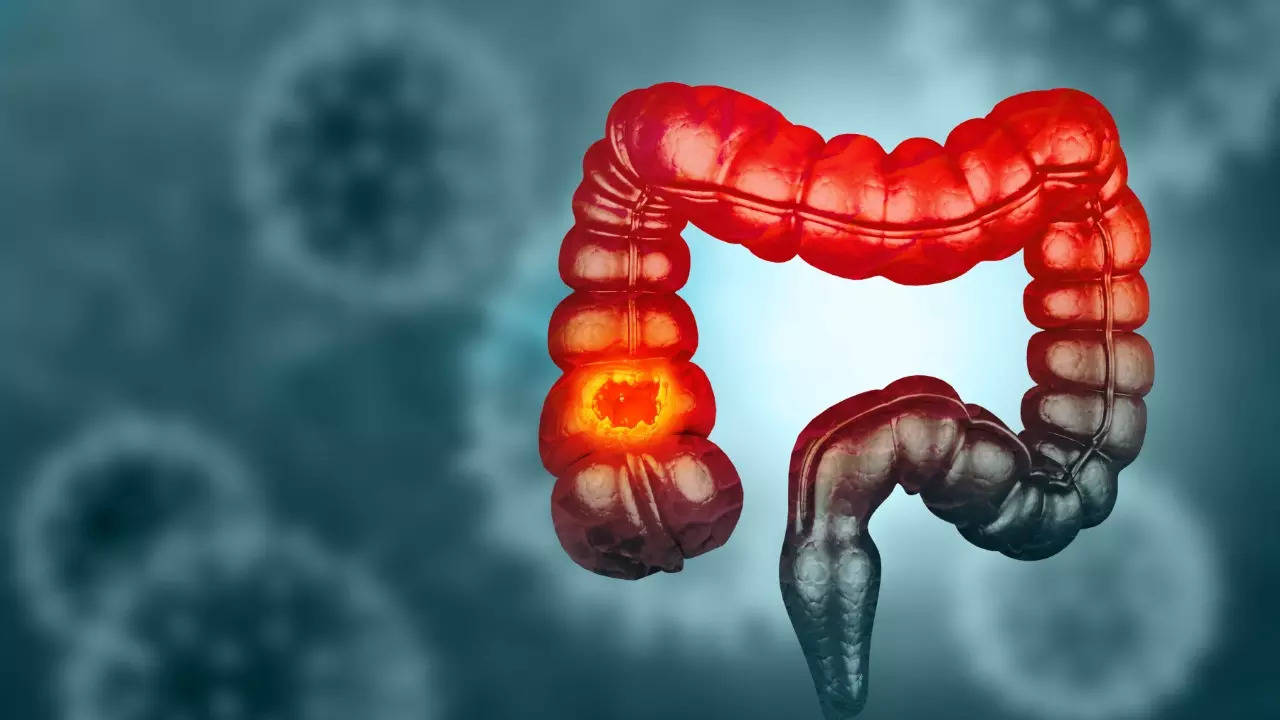Colorectal Cancer Risks: Study Reveals Alcohol And White Bread Increase Risks Of The Disease
A recent study in 'Nutrients' explored colorectal cancer causes using data from the UK Biobank. The study links genetics and diet. High alcohol and white bread intake raised risks, while dietary fibre, calcium and magnesium lowered them. No clear interaction was found between genetic factors and nutrients, emphasizing the complex interplay of genetics and lifestyle in colorectal cancer risk.

Study Reveals Alcohol And White Bread Increase Risks Of Colorectal Cancer
Photo : iStock
Colon cancer is one of the leading cancers globally and is the second-leading cause of cancer-related deaths across the globe. According to the World Health Organisation (WHO), there have been more than 1.9 million new cases of colorectal cancer and more than 9, 30, 000 deaths due to colorectal cancer in 2020 globally. There’s no one reason that causes colorectal cancer, however, there are several factors that tend to increase the risks of the disease.
According to the Centers for Disease Control and Prevention (CDC), colorectal cancer, “is a disease in which cells in the colon or rectum grow out of control. Sometimes it is called colon cancer, for short. The colon is the large intestine or large bowel. The rectum is the passageway that connects the colon to the anus.
“Sometimes abnormal growths, called polyps, form in the colon or rectum. Over time, some polyps may turn into cancer. Screening tests can find polyps so they can be removed before turning into cancer. Screening also helps find colorectal cancer at an early stage, when treatment works best.”
It is important to keep a check on the risk factors as it can help to reduce your risk of developing the disease. A recent study published in the journal ‘Nutrients’ looked at the causes of colorectal cancer, both genetic as well as dietary habits. The results show that both of these play an important role. The study was conducted in the UK Biobank which delved into the connection between 139 different foods and nutrients and the risks among 118,210 participants.
The study showed that a total of 1466 incidents of colorectal cancers were identified over a period of 12.8 years. The study showed a connection between certain foods and the risk of the disease.
High consumption of alcohol and an increased consumption of white bread increased the risks of Colorectal Cancer. The hazard ratios of the same were 1.08 and 1.10 respectively. These findings shed light on the role of diet and how an individual’s dietary choices can increase or decrease their risk of colorectal cancers.
The study also sheds light on how increased intake of dietary fibre, calcium, magnesium, phosphorus and manganese is inversely associated with the risk of developing colorectal cancer. This provides a new avenue for dietary modifications in the need for prevention.
Along with these, the researchers also created a polygenic risk score (PRS) that helped them explore if there was a connection between genetic susceptibility and dietary factors that affected the risks of colorectal cancers.
The researchers found no evidence of a PRS–nutrient interaction relationship. This shows that while both genetic and dietary factors independently influence the risks of colorectal cancer, however, their combined impact might not be as straightforward.
This research focuses on the connection between certain foods and the risks of colorectal cancer. It also highlights the need for a nuanced understanding as to how genetic factors and lifestyle choices have an impact on the risks of colorectal cancer.
Disclaimer: Tips and suggestions mentioned in the article are for general information purposes only and should not be construed as professional medical advice. Always consult your doctor or a dietician before starting any fitness programme or making any changes to your diet.
End of Article
Subscribe to our daily Lifestyle Newsletter!
Videos





03:18
Amitabh Bachchan's Heartwarming Moment with Grandson Agastya Nanda in front of his Fans

02:10
Raveena Tandon addresses CONTROVERSIAL statements regarding Khushi Kapoor and Agastya Nanda in The Archies

02:27
iQOO 12 5G | Glimpse of Exciting Leaks! | Funtouch OS Android 14, Qualcomm Snapdragon 8Gen3 & More

02:15
OnePlus 12 Design & Looks | OnePlus 12 Latest Updates | OnePlus 12 Colour Available | Gadget Times

03:53
Urfi Javed Flaunts her Topless Style | Jennifer Mistry's HEARTWARIMNG note for TMKOC













